The Best Foods To Eat For Your Age
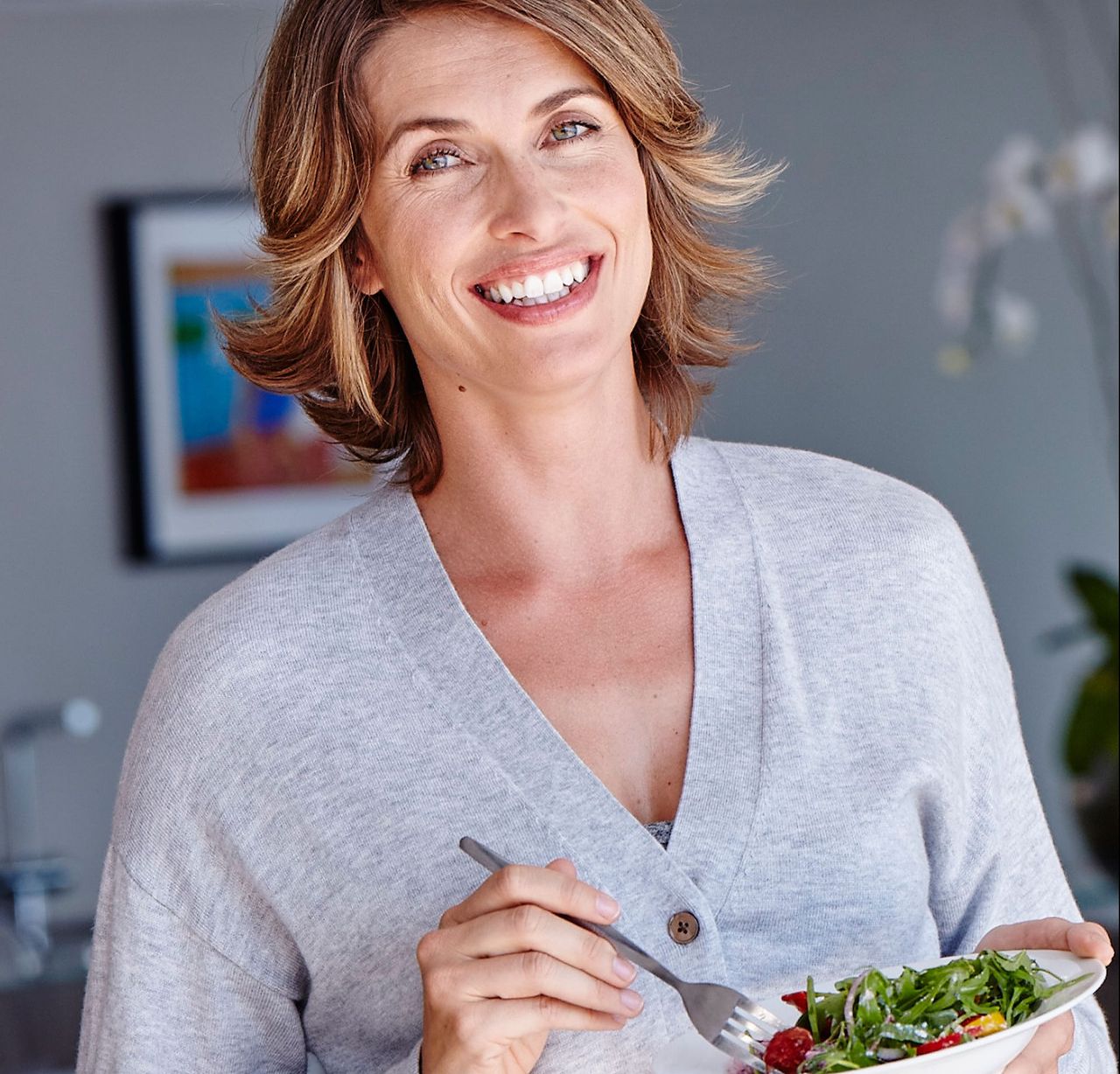

Eating a healthy, balanced diet is important at any age, but as you get older, the body goes through several changes, which means certain nutrients become increasingly important to your overall wellbeing.
"Different decades bring with them their own set of challenges for your body," says Kim Pearson, nutritionist and weight loss specialist. "From pregnancy and demanding workloads to menopause and increased tendency for weight gain - so ensure you're providing it with the right nutrients to support your body and stay your healthiest self."
Here's a breakdown of what each decade entails and how to best fuel your body.
In your 30s

The best diet for women in their 30s requires plenty of vegetables, healthy fats and iron to prevent anaemia.
"Career demands, a busy social life and children all have the potential to sap your energy," says Pearson. "As well as getting plenty of sleep, it's important to have a diet that supports your energy needs. Minimising starchy carbohydrates and sugars whilst basing meals around proteins, healthy fats and plenty of vegetables is a great place to start. These foods will fill you up and keep you satisfied as well as providing a consistent and sustained release of energy."
If you're pregnant or planning for a baby, ensure you take folate, a natural form of folic acid. "A high quality pregnancy multivitamin with additional DHA and vitamin D is a good place to start," says Pearson.
Sign up for the woman&home newsletter
Sign up to our free daily email for the latest royal and entertainment news, interesting opinion, expert advice on styling and beauty trends, and no-nonsense guides to the health and wellness questions you want answered.
Eat for high energy levels:
Grass-fed or organic red meat, leafy green vegetables, nuts, seeds, pulses
In your 40s
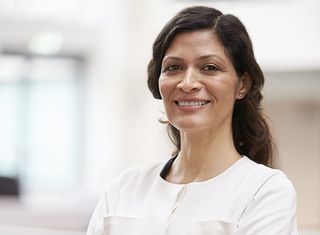
A healthy diet for women in their 40s swaps refined sugars for more sustainable sources of carbohydrates like quinoa, oats or sweet potato.
"Many people find weight starts to creep up in their 40s, so it's more important than ever to keep an eye on your intake of sugar and refined, starchy carbohydrates," Pearson advises.
In this decade, you're more likely to experience issues with high blood pressure, so keep your salt levels in check.
Eat for antioxidants:
Colourful fruits and vegetables, green tea
In your 50s
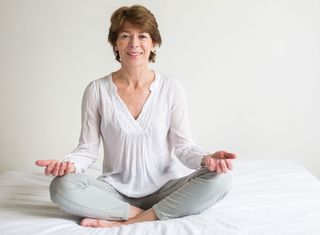
The best diet for women in their 50s is one that supports bone health.
"Oestrogen helps protect bones and as our natural levels decline," says Pearson. "So it's more important than ever to provide optimal levels of bone supportive nutrients. These include calcium, magnesium, vitamin D, vitamin K and boron."
Also ensure you get enough, but not too much, protein to support bone health and muscle repair.
At this age, you may be experiencing gut issues and your digestive system may not be functioning as effectively as in the past.
Eat for good gut health:Artichokes, green vegetables, root vegetables, quality probiotic supplement
In your 60s
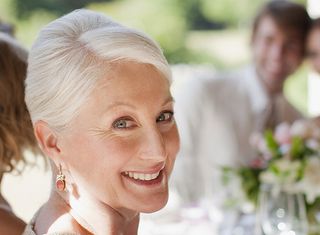
In your 60s, the body finds it more difficult to absorb vitamins and minerals, and requires fewer calories as activity levels are likely to decrease.
Your immune system become weaker in this decade, which means you'll need to boost your intake of zinc. Good sources include meat, dairy, wholegrain cereals and pulses.
The best diet for women over 60 also needs high levels of vitamin D, which can be found in eggs, oily fish or a good supplement such as cod liver oil.
Eat to stave off cognitive decline:
Colourful fruits and vegetables Red or white wine (WINNING!)
Isa Jaward is a journalist from London who has written for the likes of Time Out, The Guardian and Music Week.
-
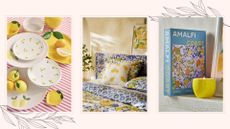 Welcome Italy into your home with the Amalfi decor trend – think lemons, ceramic patterns and bold colours
Welcome Italy into your home with the Amalfi decor trend – think lemons, ceramic patterns and bold coloursDreaming of an Italian-style summer? The new Amalfi interiors trend will provide all the dreamy Mediterranean vibes you need
By Emily Smith Published
-
 I visited 63 countries collecting local beauty secrets - these are the 4 ingredients you need to try
I visited 63 countries collecting local beauty secrets - these are the 4 ingredients you need to tryA beauty editor turned travel writer shares her must-try discoveries, from calming Turkish rose to fragrant Malaysian sandalwood
By Lydia Swinscoe Published
